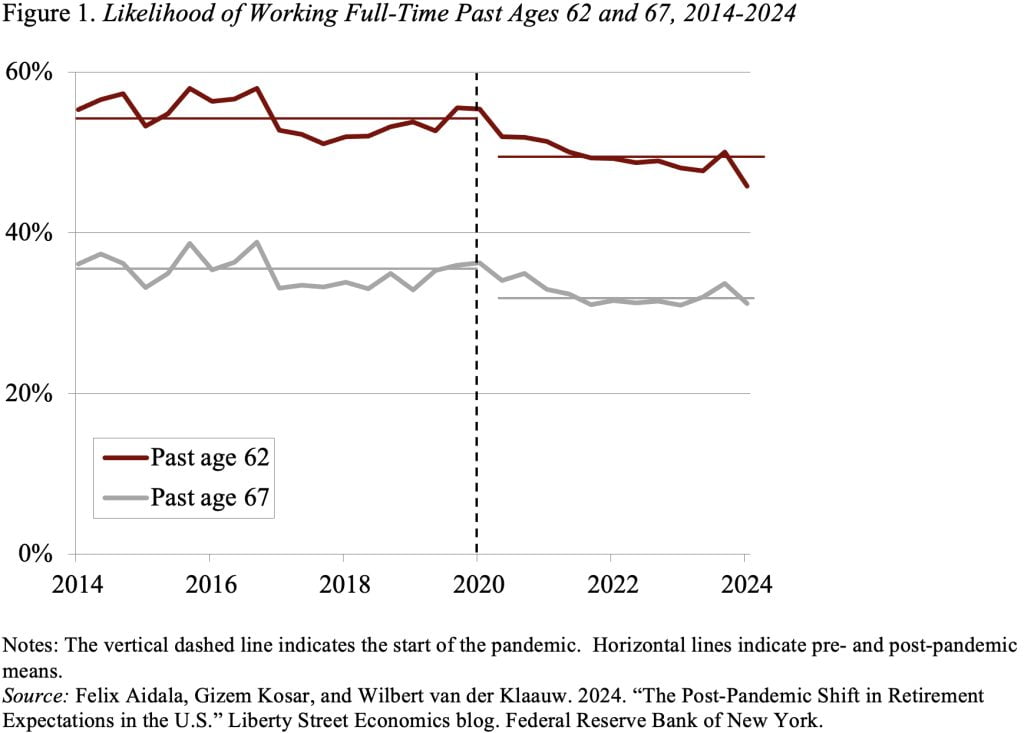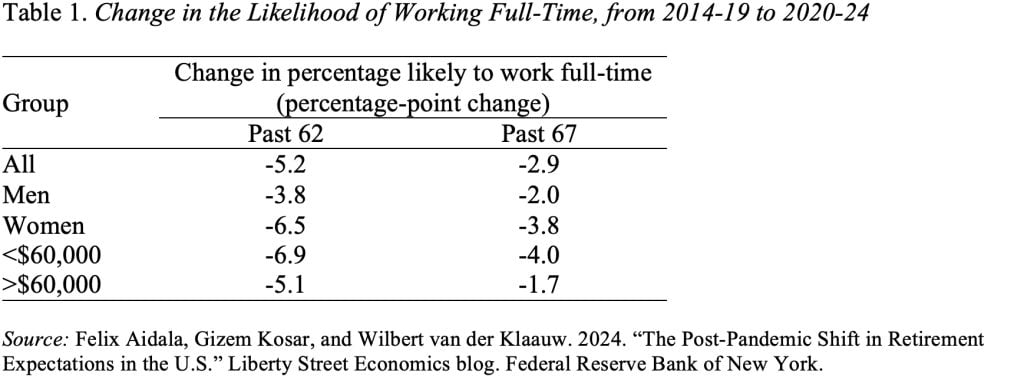
Older Workers Opting Out: Fewer People Plan to Work After Age 62
Alicia H. Munnell is a columnist for MarketWatch and director of the Center for Retirement Research at Boston College.
Are older workers more confident in their finances or more realistic about their prospects?
The New York Fed’s research department just reported a major shift in retirement expectations. Workers in 2024 are less likely to plan to work full time in their 60s than workers before the pandemic, according to responses to the Survey of Consumer Expectations (SCE) Labor Market Survey.
The SCE is a nationally representative, internet-based survey of about 1,300 household heads. Respondents participate in the panel for about 12 months, with roughly an equal number rotating in and out each month. The data on retirement expectations come from the Labor Market Survey module, which has been fielded every four months since March 2014.
The survey includes two questions relating to work and retirement. The first asks respondents younger than age 62: “Thinking about work in general and not just your present job (if you currently work), what do you think is the percent chance that you will work full-time after you reach age 62?” A similar second question asks about working beyond age 67.
The responses to these two questions are shown in Figure 1. In the six years before the pandemic, the percentages for working past age 62 had been fairly stable – averaging 54.6 percent; in the four years since the pandemic, the percentages have been declining, with an average of 49.4 percent – a drop of 5.2 percentage points. The responses for age 67 also show a decline, but the pattern is less dramatic. The percentages averaged 35.2 before the pandemic and 32.3 in the four years since, for a drop of 2.9 percentage points.

According to the authors, the decline was broad-based across age, education, and income groups (see Table 1). The differences were most striking by gender: the decline was much greater for female workers than for male workers at both ages. In addition, the decline was also greater for those with household incomes of less than $60,000 than for the higher-income group.

I wish I could say something brilliant about this change in sentiment about working longer in a full-time position. It’s unsettling given that life expectancy is increasing for much of the population, and in recent years the percentage claiming Social Security benefits at 62 had been declining, and the average retirement age had been increasing. Is this new sentiment a full-time versus part-time story? Do the responses reflect confidence due to higher net worth, more stable finances, and a stronger job market? Or does the shift, as the authors suggest, reflect a cultural change regarding the value of work? Or, given that study after study shows people consistently retire earlier than planned, are people simply becoming more realistic?
Whatever the answer, changes in work expectations at older ages is an interesting development.







